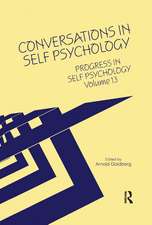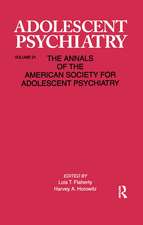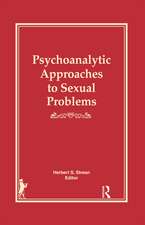The Emergent Self: An Existential-Gestalt Approach: The United Kingdom Council for Psychotherapy Series
Autor Peter Philippsonen Limba Engleză Paperback – 31 dec 2009
Din seria The United Kingdom Council for Psychotherapy Series
- 5%
 Preț: 203.36 lei
Preț: 203.36 lei - 5%
 Preț: 232.01 lei
Preț: 232.01 lei - 5%
 Preț: 181.65 lei
Preț: 181.65 lei - 5%
 Preț: 206.38 lei
Preț: 206.38 lei - 5%
 Preț: 137.56 lei
Preț: 137.56 lei - 5%
 Preț: 251.53 lei
Preț: 251.53 lei - 5%
 Preț: 326.58 lei
Preț: 326.58 lei - 21%
 Preț: 216.28 lei
Preț: 216.28 lei - 23%
 Preț: 198.03 lei
Preț: 198.03 lei - 25%
 Preț: 148.72 lei
Preț: 148.72 lei - 19%
 Preț: 241.87 lei
Preț: 241.87 lei - 22%
 Preț: 172.71 lei
Preț: 172.71 lei - 16%
 Preț: 229.11 lei
Preț: 229.11 lei - 22%
 Preț: 148.48 lei
Preț: 148.48 lei - 21%
 Preț: 815.78 lei
Preț: 815.78 lei - 21%
 Preț: 815.17 lei
Preț: 815.17 lei - 21%
 Preț: 815.17 lei
Preț: 815.17 lei - 14%
 Preț: 814.72 lei
Preț: 814.72 lei - 21%
 Preț: 752.87 lei
Preț: 752.87 lei - 21%
 Preț: 812.98 lei
Preț: 812.98 lei - 21%
 Preț: 814.53 lei
Preț: 814.53 lei - 20%
 Preț: 821.32 lei
Preț: 821.32 lei - 21%
 Preț: 815.34 lei
Preț: 815.34 lei - 5%
 Preț: 220.66 lei
Preț: 220.66 lei - 21%
 Preț: 814.08 lei
Preț: 814.08 lei - 14%
 Preț: 818.49 lei
Preț: 818.49 lei - 14%
 Preț: 817.32 lei
Preț: 817.32 lei - 21%
 Preț: 813.02 lei
Preț: 813.02 lei - 21%
 Preț: 814.77 lei
Preț: 814.77 lei - 18%
 Preț: 816.36 lei
Preț: 816.36 lei - 5%
 Preț: 329.32 lei
Preț: 329.32 lei
Preț: 210.28 lei
Preț vechi: 221.35 lei
-5% Nou
Puncte Express: 315
Preț estimativ în valută:
40.25€ • 43.73$ • 33.83£
40.25€ • 43.73$ • 33.83£
Carte disponibilă
Livrare economică 31 martie-14 aprilie
Livrare express 14-20 martie pentru 19.93 lei
Preluare comenzi: 021 569.72.76
Specificații
ISBN-13: 9781855755253
ISBN-10: 1855755254
Pagini: 160
Dimensiuni: 152 x 229 x 11 mm
Greutate: 0.27 kg
Ediția:New.
Editura: Taylor & Francis
Colecția Routledge
Seria The United Kingdom Council for Psychotherapy Series
Locul publicării:Oxford, United Kingdom
ISBN-10: 1855755254
Pagini: 160
Dimensiuni: 152 x 229 x 11 mm
Greutate: 0.27 kg
Ediția:New.
Editura: Taylor & Francis
Colecția Routledge
Seria The United Kingdom Council for Psychotherapy Series
Locul publicării:Oxford, United Kingdom
Public țintă
Professional Practice & DevelopmentCuprins
A Selection from the ContentsComplexity and EmergenceRelationship and FeedbackChaos, Process and StructureChoice and WillDeath and Endings
Descriere
Tracks a particular understanding of self, philosophically, from research evidence and in its implications for psychotherapy. This book includes at each stage the theory that the author is working from, the clinical implications of the theory, followed by some links to the philosophical outlook inherent in the theory, and finally a case example.






















